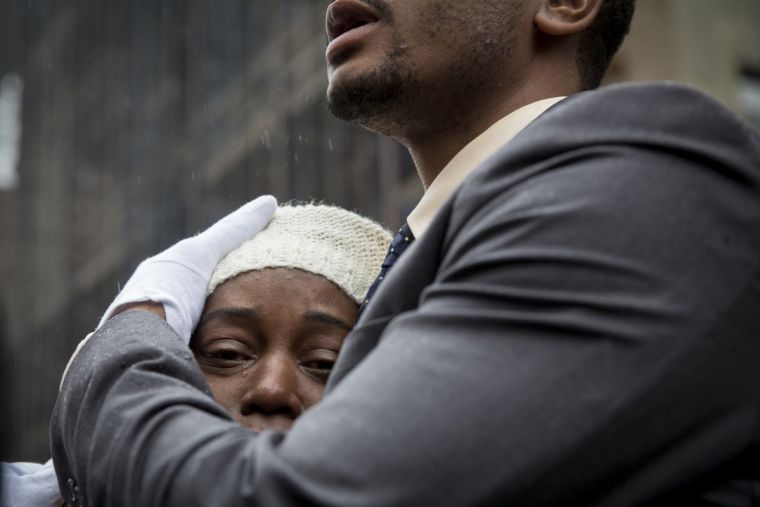Akai Gurley remembered at Brooklyn funeral; church leader says 'wave of police brutality must stop today'

The funeral of Akai Gurley, a 28-year-old black man shot dead by a white police officer in Brooklyn last month, was held in New York today.
Gurley, father to a 2-year-old girl, was shot in the stairwell of an apartment at a public housing project.
It was the latest in a series of incidents fuelling outrage over what protesters say is a pattern of excessive force being used by law enforcement against African-Americans.
But a fourth night of demonstrations against police violence got off to a slow start on a rain-soaked Saturday in New York.
The killings and decisions by grand juries to return no indictments against officers involved in them have rekindled a national debate over race relations in the United States.
The district attorney in the New York City borough of Brooklyn said on Friday a grand jury would consider charges against Peter Liang, the officer who shot Gurley. Police have said Liang may have accidentally discharged his gun.
In Brooklyn, mourners gathered on Saturday morning at a Baptist church to remember Gurley. Afterwards about 75 people gathered for a vigil and brief march in his memory.
Clinton Jordan, a 40-year-old security administrator at John F Kennedy International Airport, was born and raised in the Louis H Pink housing project, where Gurley was shot.
He said residents of the project, known as the Pink Houses, felt a mixture of anger and resignation after his shooting.
"You know in this neighbourhood you've seen a lot of police brutality to the point where we're just fed up," he said.
Elsewhere in New York, demonstrations were even more restrained than on Friday, when arrests fell to 20 from 200 on Thursday night.
"Seems to be the weather - it's not really making it easy for them," said a police officer in Times Square. He said he saw about 200 people march through the area, one of New York's busiest shopping zones, during the afternoon.
A dozen protesters lay down again on the floor in New York's Grand Central Terminal in one of the now-familiar "die-ins" featured in the wave of protests this week. Tourists and commuters stopped to watch the silent protest and snap pictures before going on their way.
"The fact that people are mobilising is a great thing," said Amine Lazreg, a 24-year-old from Montreal said while sitting in a coffee shop in Times Square. "This type of protest is for social justice - I don't know anyone who would go against that."
Protesters and police alike have showed restraint and no major violence has flared.
The demonstrations began on Wednesday after a grand jury decided to bring no charges against Daniel Pantaleo, a New York City police officer, in the July death of Eric Garner, a 43-year-old father of six.
That decision was announced nine days after a Missouri grand jury chose not to indict a white policeman for the shooting death in August of an unarmed black teenager, spurring two nights of violence and arson in a St Louis suburb.
Protests have erupted across the country. On Saturday, hundreds of people in Hartford, Connecticut, marched for nearly two miles in the pouring rain to a rally at a city park.
"I'm angry and I'm scared," said Rev Henry Brown, founder of Mothers United Against Violence, which helped organise the rally. "This new wave of police brutality must stop today."
In California, marches are sfor Berkeley and San Francisco, and protesters plan to rally at a tree-lighting ceremony in Alameda.
Protests are scheduled for Sunday for New York, Chicago, Philadelphia, Miami and Minneapolis, among dozens of other cities.
Source: Reuters











